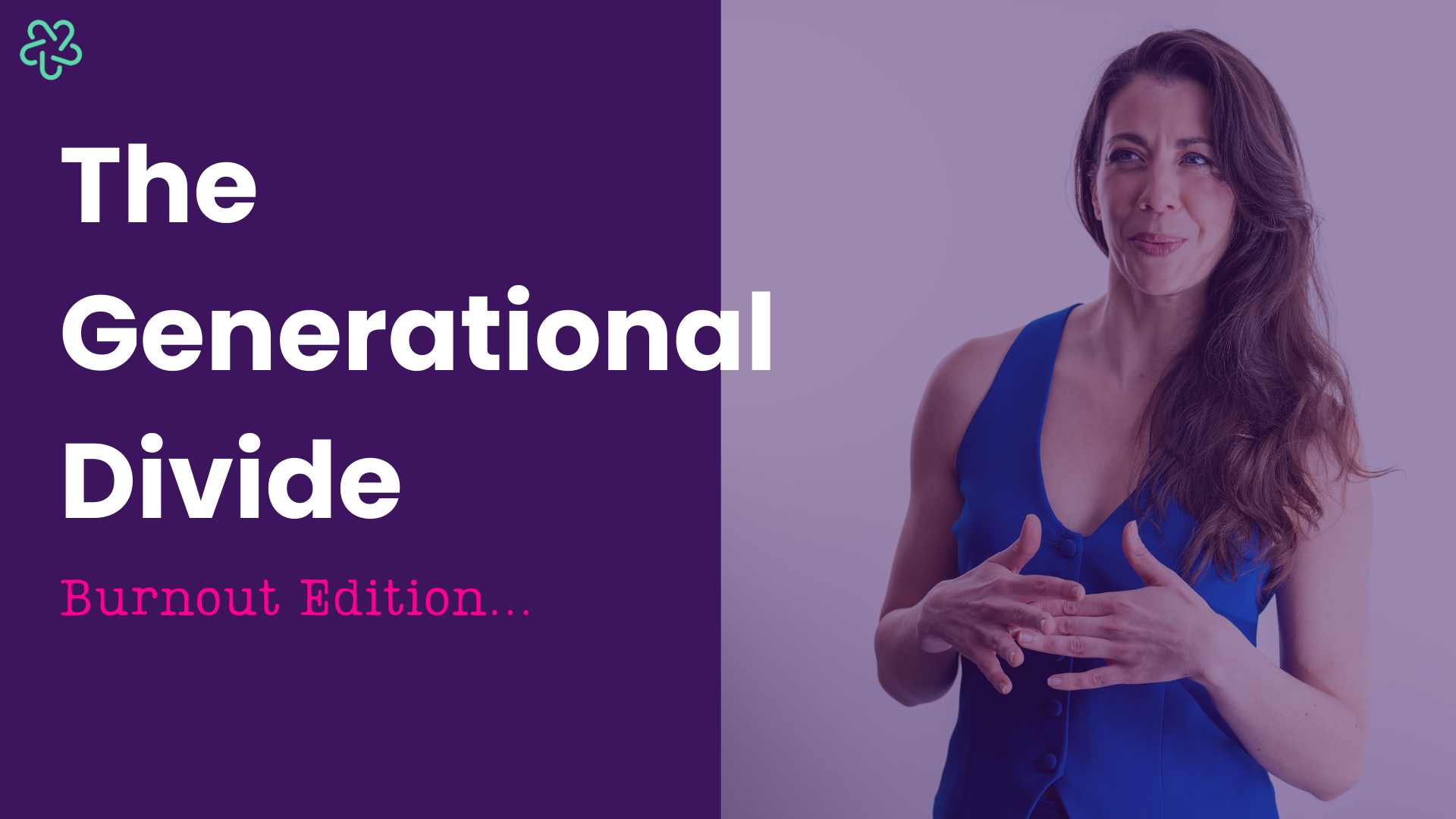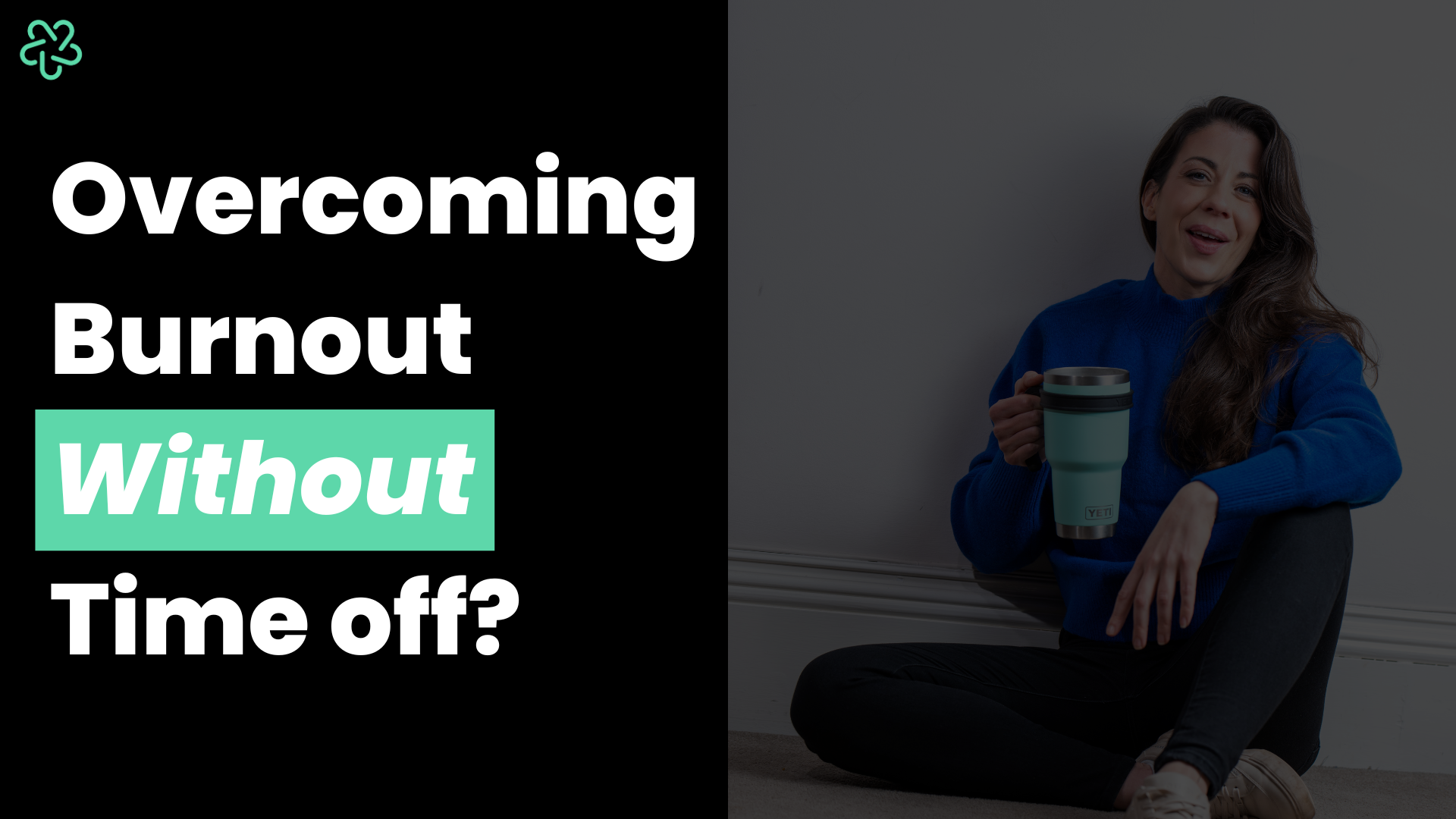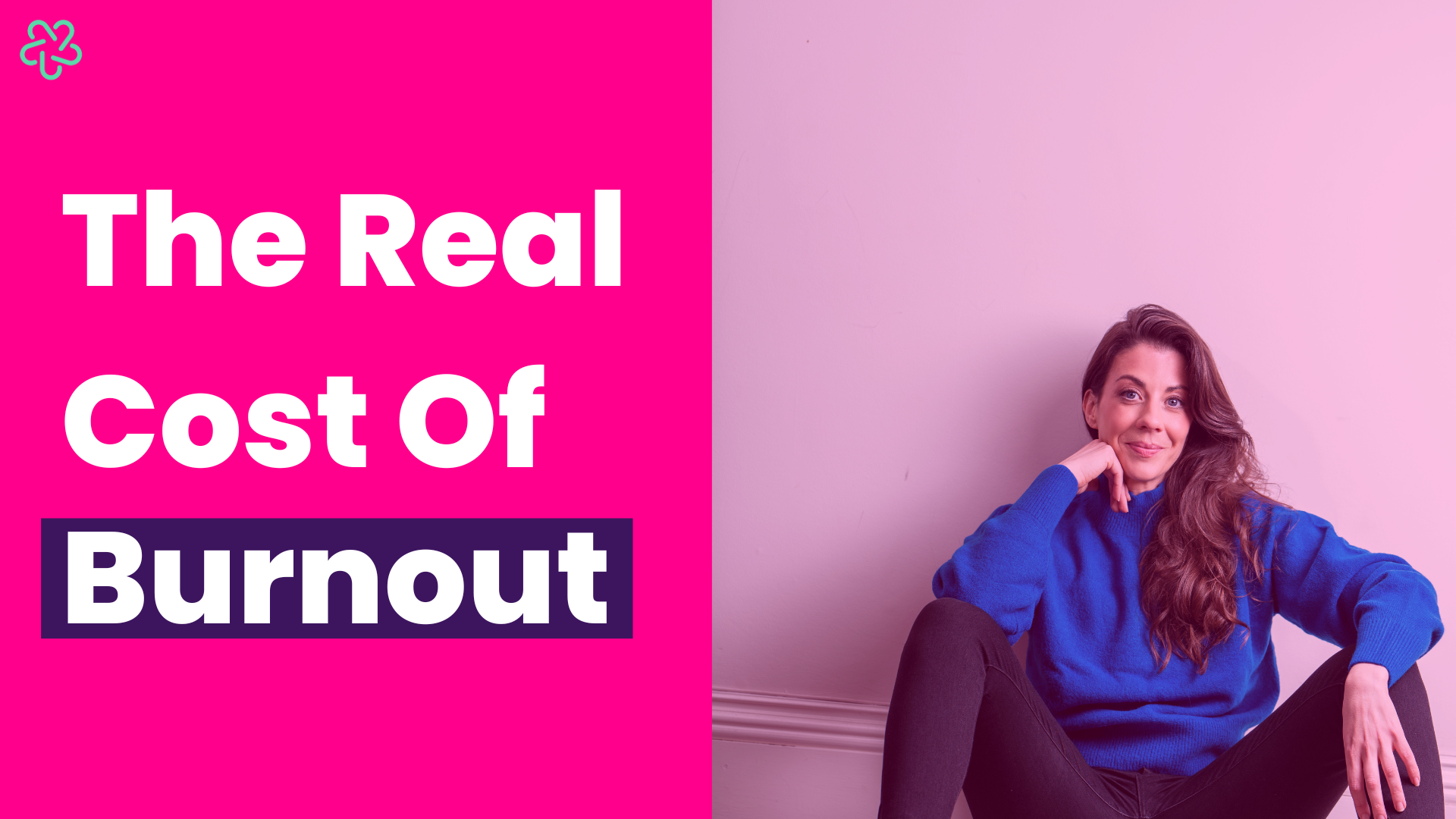Okay, let’s chat about burnout—but this time, let’s talk about the generational divide.
We’ve all seen the chatter amongst the different generations, but who has it right? How is burnout impacting each of those generations? What’s causing it? And of course, what can be done?
We know burnout is at an all-time high, with 79% of employees feeling its effects. But what’s interesting is how burnout shows up differently depending on which generation you’re in. And how you perceive it!
Let’s break it down.
Each generation has its own unique relationship with work, shaped by the culture, economy, and expectations they grew up with. And that massively impacts how they perceive and experience burnout.
Boomers (Born 1946–1964)
Our beloved Boomer. This generation was raised with the idea that success comes from hard work, loyalty, and climbing the corporate ladder. Which makes sense. Many of those beliefs were fact, the harder they worked the better opportunities came by. Many Boomers are now either retiring or delaying retirement due to financial reasons.
Let’s not forget that many from this generation had to weather the 2008 Global Financial Crisis that delayed retirement for many, and we’re now seeing the cost of living having its impact.
Why they burn out:
- Reluctance to step back or slow down.
- Pressure to mentor younger employees while still keeping up with changing workplace trends. The divide here is immense, especially with Gen Z entering the workplace, but more on this later.
- Anxiety over job security in a fast-evolving work environment.
How they cope:
- Prioritising mentorship roles to find fulfilment. We have to remember a big part of burnout is feeling like you’re valued in the workplace, so this is massive for many boomers.
- Seeking phased retirement options or consulting work.
- Focusing on physical health and stress management.
Gen X (Born 1965–1980)
Ahh our “forgotten middle child” of generations, Gen Xers were raised with a strong sense of independence. They’re often balancing senior leadership roles with personal responsibilities like raising kids and caring for ageing parents. It’s tough out there for a lot of Gen Xers. Coupled with the fact they’re having to adapt their leadership styles to the entering generations.
Why they burn out:
- Career stagnation. Many feel stuck between Boomers who won’t retire and Millennials rising through the ranks.
- Increased responsibilities at home and work.
- Workplaces cater more to younger generations, leaving Gen X feeling overlooked. This is a big one. We cannot ignore the changes that this generation has seen and are currently facing. It also comes back to adapting their leadership style, which comes with changes to expectations, communication and how people are choosing to work
How they can manage:
- Setting clear boundaries at work and home. Especially with children and ageing parents. Many are requesting more flexible working options, just a little nod to why flexible working is really important.
- Advocating for leadership development opportunities. This is really important. We are seeing a very top-heavy issue when it comes to organisations. However, asking for a leadership progression plan is important right now.
- Seeking peer support and professional coaching.
Millennials (Born 1981–1996)
Ah, the burnt-out generation. Millennials came into the workforce during economic downturns, skyrocketing student debt, and the rise of hustle culture. Who can remember those horrendous memes we all saw about “Sleep when you’re dead” or “You have to work 20 hours a day to be successful”, I do. They were told to “follow their passion,” but now many are feeling the weight of unrealistic expectations. And unrealistic expectations can come in the form of going to school, getting a good job, buying a house and starting a family… Has anyone else seen the housing market? This is leaving a lot of Millennials stuck, frustrated and you guessed it, burnt out.
Why they burn out:
- Overworking due to hustle culture and job insecurity. Many Millenials entered the job market simply feeling grateful that they had a job, which can create some unhealthy behaviours… But let’s not get sidetracked.
- Feeling pressure to be “always on” thanks to tech and social media. They were the first generation to have access to this level of tech entering the workplace.
- Lack of financial stability—many are still renting, delaying major life milestones, or dealing with debt.
How they cope:
- Prioritising mental health and therapy. I love to see how many Millenials are taking to therapy, it’s incredible!
- Exploring career pivots that align with values.
- Engaging in community and support networks.
Gen Z (Born 1997–2012)
Gen Z is pushing back against traditional workplace norms! They prioritise mental health, work-life balance, and purpose-driven careers more than previous generations. And it makes sense. they’re entering the workplace at a time of ever-increasing cost to living prices, and many of the other generations are stagnant in their careers, so the whole “work hard” “go above and beyond” “be loyal” doesn’t make sense to this generation. But that doesn’t mean they’re immune to burnout, actually, this is the generation that’s burning out the fastest!
Why they burn out:
- Rising cost of living and economic instability. Also, less opportunity for growth and development in companies. There are five generations in the workplace right now, it’s stacked and there’s little movement
- Social media comparison culture makes them feel like they’re never doing enough.
- Entering the workforce during a pandemic leads to disconnection and a lack of workplace belonging. This generation is a very disengaged generation, which makes sense when we look at the economic climate they’re entering.
How they cope:
- Setting firm work-life boundaries early in their careers. This is why they’re pushing flexible working and working from home.
- Seeking purpose-driven roles and companies that align with their values.
- Utilising social media for advocacy and community building instead of fostering comparison. Since comparison robs us of joy, leveraging social media to effect change is vital.
So, What Can We Do About It?
Look, we’re here now and we have to come up with solutions. Burying our heads in the sand isn’t going to work. Burnout is increasing year on year at the moment and it’s impacting business and it’s impacting people.
So what can we do? Well, it’s a collective solution, really.
For Companies:
- Recognize generational differences – Understand that a one-size-fits-all approach to burnout won’t work. Speak to your people, get a deep understanding of their root causes and look at what solution you can provide. The biggest mistake that companies do is to look at the common causes of burnout, without understanding the difference in age groups and people.
- Provide flexible work options – Different generations have different needs and understanding what those needs are are important. There’s a rise in the “forcing people back in the office” mentality right now… And it’s not serving all the generations. This is where flexible working can come into play. Is there one way to do flexible working? Of course not! Find what works for your company. Will you make EVERYONE happy? No, and that’s not the goal. Your goal is to provide an environment where people can do their work in the most effective way.
- Encourage mentorship and reverse mentorship – Help bridge the gap between generations by fostering knowledge-sharing in both directions. I love mentorship and reverse mentorship. One of the biggest issues we have right now (and have always had) is the lack of connection between the generations. The older generations have perceptions of the younger generations and vice versa. Fostering a connection where they can learn from each other is not only going to create an incredible working environment, it’s going to drive creativity and innovation. Give it a go!
For Individuals:
- Set boundaries – Whether you’re a Boomer struggling to step back or a Gen Zer afraid of being seen as “lazy,” protecting your energy is key. Set your boundaries, talk about expectations, develop a better understanding of how to work with your company (and of course, vice versa) and ensure that you’re understanding the root causes of your chronic stress!
- Ditch the comparison trap – This is key and it takes multiple forms. Make sure that you don’t compare yourself to others in social media, the workplace or even different generations. We’re living in a time where it’s easy to develop the us vs them mentality and we don’t need that in the workplace. Emphasising why it’s so helpful (and important) for each generation to talk to each other, understand each other’s points and develop that empathy muscle.
- Prioritise recovery – Burnout recovery isn’t just about stopping work; it’s about actively engaging in things that replenish you. Right now, we’re seeing huge numbers of people who are burnt out and recovery looks really different to each group and each individual. With research suggesting that it can take 3 months off work to get back to baseline, for many, this isn’t an option. Chronic stress takes it toll on you physically, mentally and emotionally and ditching the bad habits and developing good habits is key! (Check out the blog: How To Overcome Burnout Without Taking Time Off)
What Next?
Burnout is universal, but how we experience it varies. Understanding generational differences helps us create healthier workplaces and personal habits.
So, what about you? Do you recognise any of these burnout patterns in yourself or your team? Let’s start of conversation! Reach out to me on all the different platforms or feel free to have a gander at talks, workshops or even 121 coaching.



